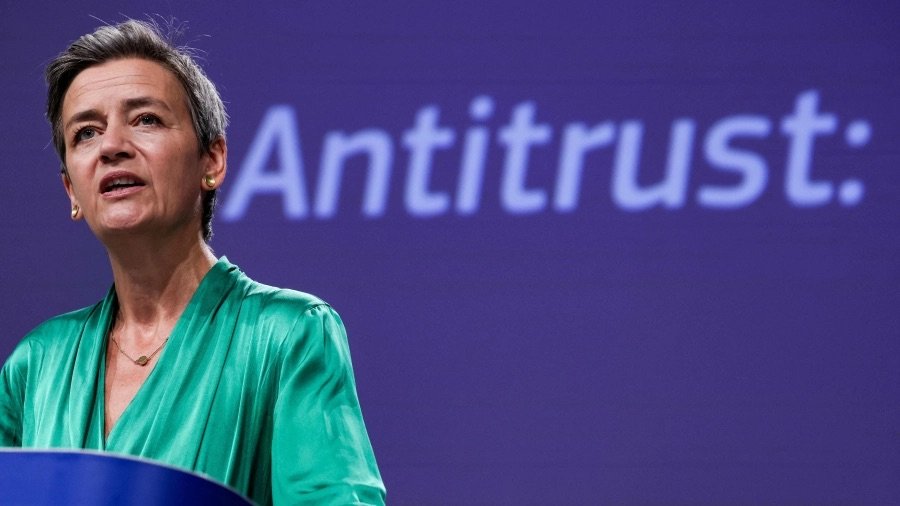How to grow European tech champions and tackle anti-competitive behaviour by global tech giants has been chewed over endlessly in recent years. Meanwhile, Europe’s cloud computing sector has been losing market share.
According to a September 2021 report from Synergy Research, the European cloud market quadrupled in size since 2017 and European cloud providers more than doubled their revenues, but their market share dropped from 27% to under 16%. Amazon, Microsoft and Google’s cloud services now account for nearly 70% of the market.
“From a purely anti-competitive standpoint there is no monopoly, there are three main competitors, but together they form an oligopoly,” Scaleway chief executive Yann Lechelle told Tech.eu. “Saying that there is no problem is naive at best.”

Lechelle posted an open letter to EU Commissioner for Competition Margrethe Vestager recently, in response to her statement to Reuters that “so far we've had no concerns," over anti-trust behaviour in cloud computing.
He and his co-signatories wrote that they were facing “a number of well-characterised, abusive practices” that “annihilate any possibility of free, loyal competition” and called for stronger policies to rebalance the cloud markets.
“If you say there's nothing wrong, then how do you explain these companies that generate trillion-dollar valuations?” Lechelle says. “All of that can be traced back to a number of things… Do they pay their taxes in Europe? Well, not so much. Do they get sued here and there? Yes. In other words, these guys are repeat offenders.”
Microsoft has been fined a total of €1.6 billion by the European Commission in the past 10 years for breaching antitrust rules.
“We don't have any digital sovereignty, because we are largely dependent on American companies,” he says, adding that while the Digital Markets Act and GDPR regulations are good, they are not extraterritorial laws like the US has, which allow it to act upon its data elsewhere. “Europe is only trying to protect itself, that's a defensive, not an offensive approach.”
Lechelle believes that Europe needs to get more assertive, both legally and behaviourally, when it comes to protecting and supporting its own tech companies, especially certain players in particular key industries until they reach a level of maturity and scale where they no longer need it.
“When you take any company in Europe, a large or even a midsize company, and you ask the purchasing department how much European technology they buy, out of 100% it's usually less than 1%,” Lechelle says “But if we create a mindset where we say, okay, what if we had a collective goal of reaching 3%? In other words, it's all about mindset. Currently, we don't measure, we're not aware of this dependency."
Gaia-X exit
Scaleway was one of the founding members of Europe’s cloud infrastructure initiative Gaia-X. However, the company decided last year to not renew its Gaia-X membership, one reason being that Gaia-X no longer favours only EU cloud actors.
Vestager told Reuters in March that Gaia-X would boost competition, as it would show potential customers that there are “more than two giants where you can place your business.”
A report from Politico ahead of the Gaia-X annual meeting in November revealed that some board members were concerned about the optics of Chinese tech giants Huawei and Alibaba sponsoring the meeting. The two firms, as well as Amazon Web Services and Microsoft, are members of Gaia-X.
“A journalist asked me what I thought about the Gaia-X summit, and I thought to myself, ‘nothing is going to come out of Gaia-X,'” Lechelle says. “So, at that moment, on live TV, I said, ‘I'm leaving. It makes no sense. I'm wasting my time.’”
Lechelle says that for him, the best way to help Scaleway succeed is to use his energy to “race ahead to provide what the French market, the European market and what the world market needs – not Gaia-X compliance, which is only serving the status quo.”
Yann Lechelle and other experts will be on stage to discuss European tech sovereignty from all angles at the Tech.eu Summit on 17 May in Brussels. Join us to find out more.
Lead image: Max Riché



Would you like to write the first comment?
Login to post comments